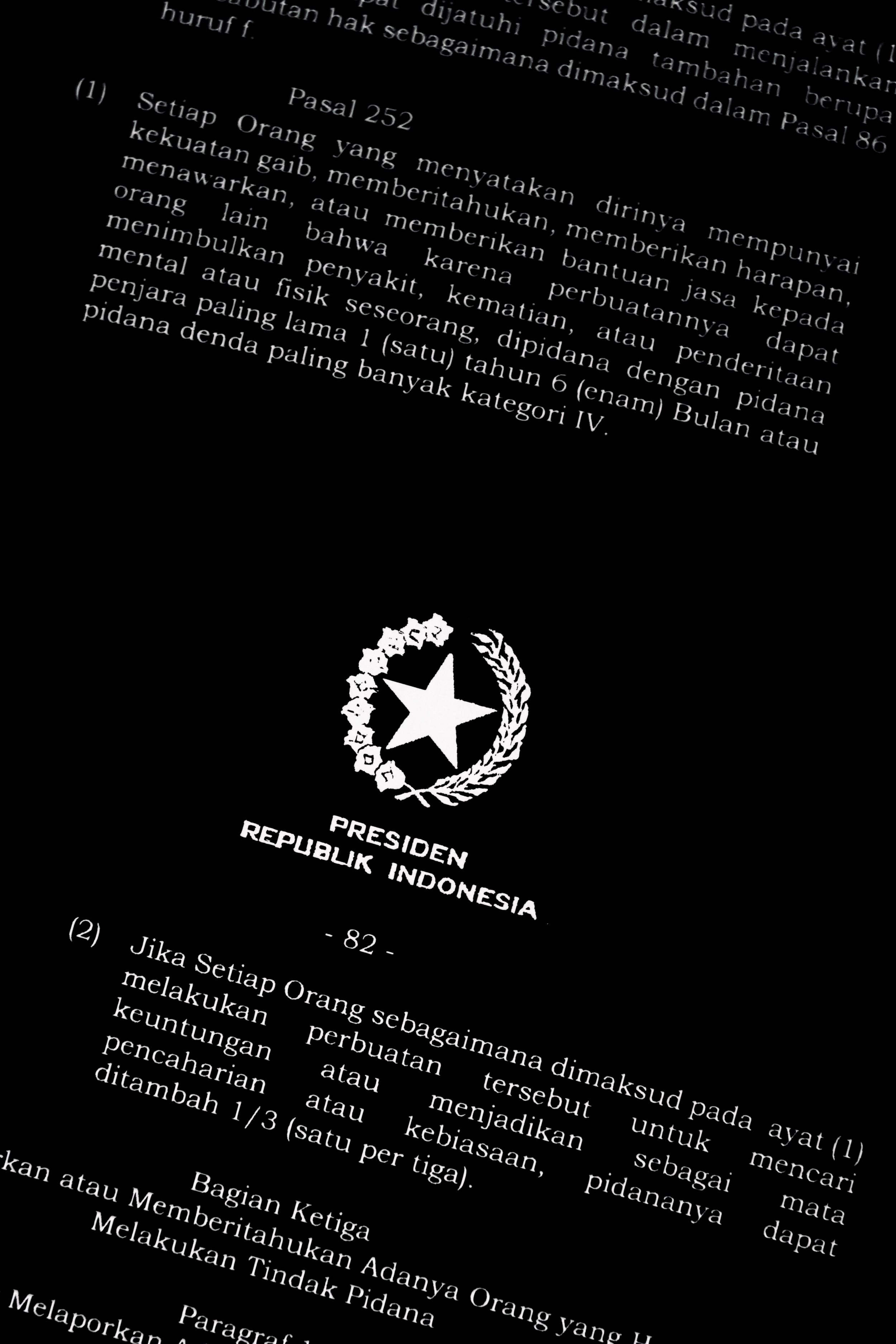
Ayam Cemani
The Black Chicken

In Indonesia, magic is real.
Mysticism and belief in magic live side by side with major conservative religions. Areas like Banyuwangi in East Java are especially renowned for shamans and black magic. They have gained notoriety throughout Indonesia for this association with the mystical. Their mention often elicits a mix of respect and fear.
Belief in the supernatural exerts a profound influence on daily life.
Dukun, or shamans and traditional healers, have been central figures in East Javanese society for centuries. Today, their practices fuse indigenous beliefs with animism, Islam, and Javanese mysticism – and they proudly assert their supernatural abilities.
Most dukun adhere to a strict code of ethics that prohibits harming others. They are said to have inherited their power from ancestors, enhanced through rigorous practice, including meditation and fasting.
In cases of personal or communal disasters where rational explanations are elusive, blame is often attributed to black magic or external forces.
This attribution can lead to retaliatory actions against those perceived as responsible. In the late 90s, dozens of shamans were murdered in Banyuwangi.
And in the last few years, elements of black magic have been deemed illegal under the Indonesian criminal law code.
Whether magic holds the power of a placebo or is genuinely supernatural is up for debate.
In Indonesia, as in many cultures, the reality of magic is as real as one wants it to be.















